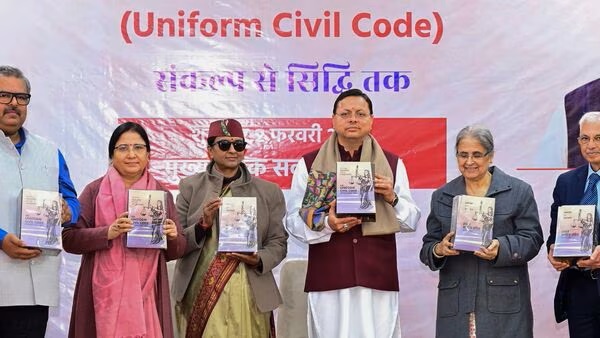– Pervez Bari
Bhopal, Feb. 15: Adv. Sharfuddin Ahmad, Vice President of Social Democratic Party of India (SDPI), in a statement, said that Uniform Civil Code (UCC) of Uttarakhand appears to be a “Political Gimmick”, not-so-universal and harmful to the followers of Mitakshara School.
The Uttarakhand Assembly on February 6 passed the law becoming the first state in the country to enact Uniform Civil Code, applying the new provisions replacing the common laws for marriage, divorce, inheritance of property, etc. for all communities in the state, earlier governed by separate personal laws of each religion.
The concept of Mitakshara School coparcenaries means that ancestral property is owned jointly by all male family members, who share equal rights to it. It also acknowledges daughters’ right to inherit property though with some limitations.
Adv. Sharfuddin Ahmad pointed out that the odd thing is that the UCC will not apply to “members of any Scheduled Tribes within the meaning of Clause 25 of Article 366 read with Article 142 of the Constitution and the persons and group of persons whose customary rights are protected under Part XXI of the Constitution of India.”
Adv. Ahmad said this exclusion of a section of people from the scope of the law itself fails the goal of the new law that may not be termed as common law of the state and halfway fails to achieve the avowed objective of the BJP.
He said the State Uniform Code takes away many benefits that the Hindu community has been enjoying under the erstwhile Hindu code throughout the country. These are as follows:
- The new law removes the coparcenaries’ rights of the Hindu community granted by the law of the land to the followers of the Mitakshara School adhering to the Hindu joint family concept granting benefits.
- The Mitakshara School grants coparcenaries rights to male descendants from a common ancestor, enabling them to share ancestral property for four generations. This principle of co-ownership extends during the father’s lifetime.
- The new law denies the members of the Hindu joint family the right of exemption of income tax they had been enjoying under the old Hindu code.
- The new law borrows the principle from the Muslim law related to the inheritance in the case of son’s death while the father is alive. The new code makes father in the list of direct dependents, if the son dies intestate. The old Hindu code has included mother in the list as direct dependent of the deceased son and father was not included.
- As per Muslim Personal Law, only one-third of one’s property could be awarded through will. But the new code has removed this limit, giving the entire property to anybody through the way of will.
- Another point is the criminalisation of “Halala” which is a more political than practical or legal issue. The larger issue of the abandoned women is left unaddressed; or as making equal right of inheritance of the property of the deceased parents to the son and daughter are in contradiction to the Muslim law.
- Statistics shows that bigamy and polygamy are practised more by the Buddhist and Hindu communities and banning bigamy and polygamy will affect these communities more.
Meanwhile, Adv. Ahmad said that Article 44 of Directive Principles of State Policy is being used as a political gimmick by BJP to win elections.
So, the UCC in Uttarakhand sans real issues hence may be a pure political gimmick not to be acceptable to the majority people of the state because of realities of social life in the long run as it adversely affects the Hindu community more, Adv. Ahmad asserted.




